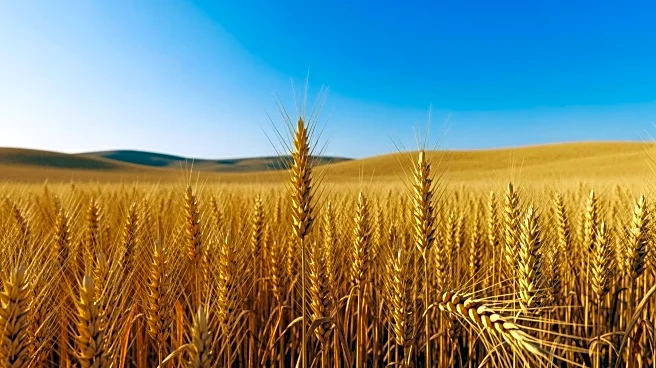What is the story about?
What's Happening?
The Rye Resurgence Project is an initiative aimed at introducing rye as a sustainable crop in the drought-stricken San Luis Valley, Colorado. This project partners with local producers and businesses to cultivate rye, which requires significantly less water than traditional crops like barley and alfalfa. The initiative seeks to create new markets for rye, thereby supporting the local agricultural economy. The project is a response to the ongoing drought and climate pressures that threaten the region's agricultural viability, with rye offering a more water-efficient alternative.
Why It's Important?
The San Luis Valley is a crucial agricultural region in Colorado, contributing significantly to the state's economy. However, prolonged drought conditions have depleted water resources, posing a threat to traditional farming practices. By promoting rye, which uses less water, the Rye Resurgence Project aims to enhance the region's agricultural resilience and sustainability. This initiative not only supports local farmers by providing them with a new crop to cultivate but also aligns with broader environmental goals by reducing water usage. The project's success could serve as a model for other regions facing similar challenges.
What's Next?
The Rye Resurgence Project plans to expand its partnerships with more farmers and businesses to increase rye production and market reach. Efforts will continue to educate consumers about the benefits of rye and encourage its use in various products. The project also aims to strengthen collaborations with urban businesses, like Denver's Little Man Ice Cream, to boost demand for rye-based products. As the initiative progresses, it will likely focus on building a robust supply chain and ensuring that the economic benefits are equitably distributed among participating farmers and communities.
Beyond the Headlines
The introduction of rye in the San Luis Valley highlights the potential for agricultural innovation to address environmental challenges. By shifting to more sustainable crops, farmers can mitigate the impacts of climate change and water scarcity. This project also underscores the importance of collaboration between rural and urban stakeholders in creating resilient food systems. The success of such initiatives could lead to broader policy changes that support sustainable agriculture and resource management, ultimately contributing to long-term environmental and economic stability.

















